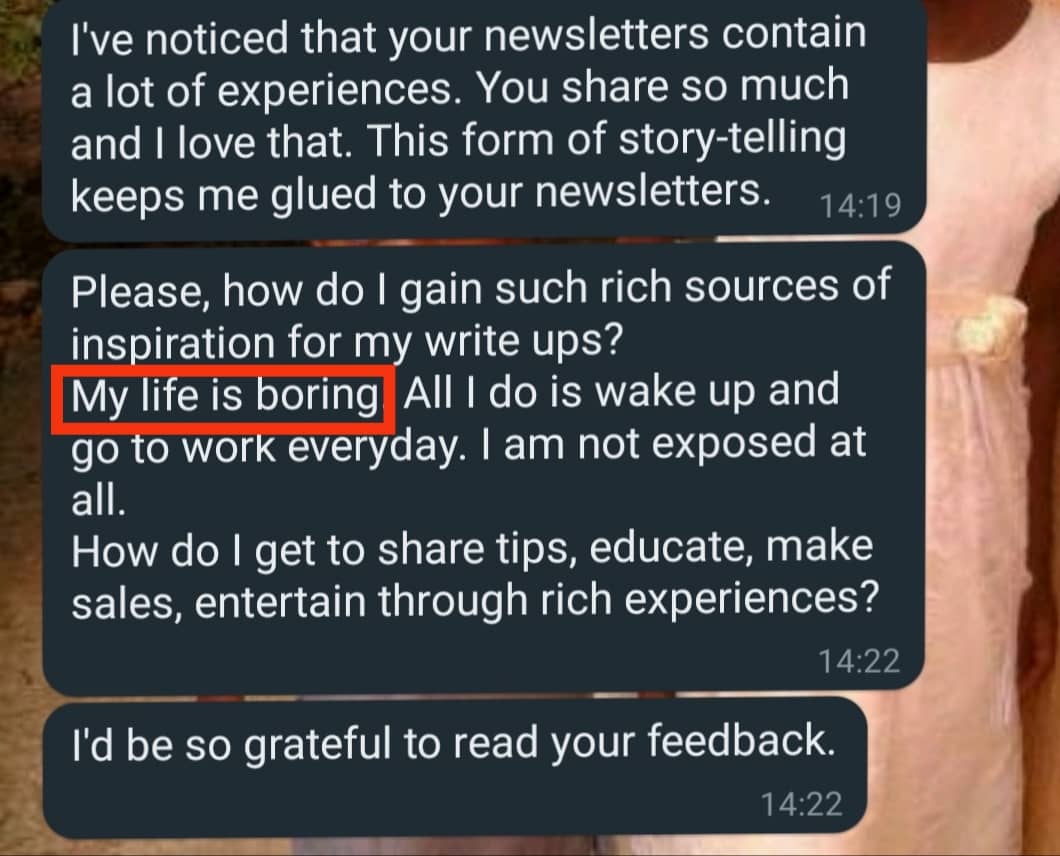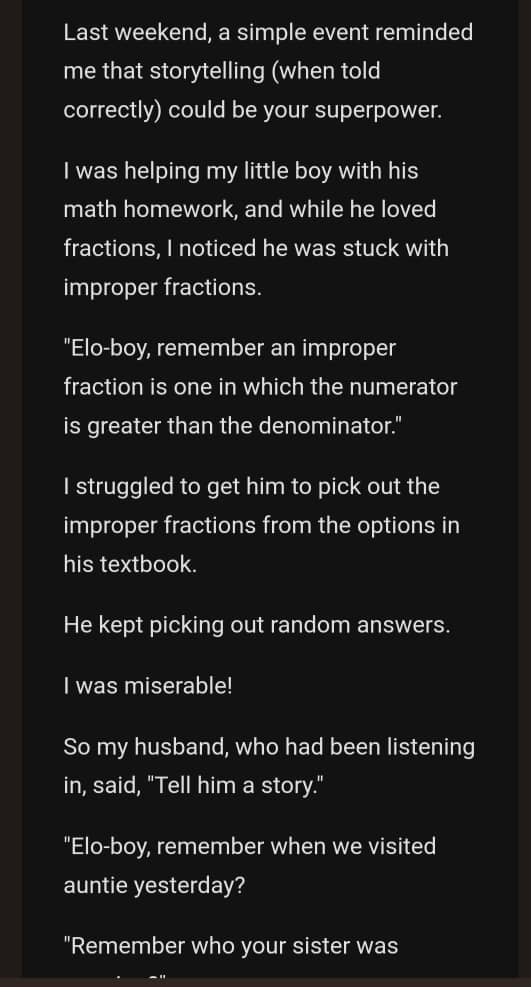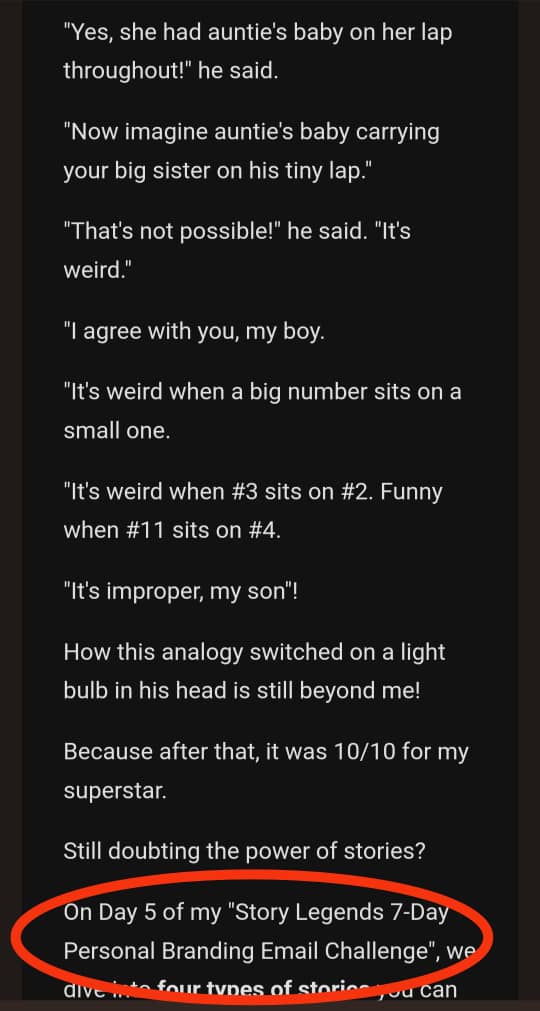The most valuable skill every entrepreneur should master is storytelling. And with good reason. Whether it is in business, education, entertainment, or personal connections, storytelling is a surefire way to leave a memorable impact in the minds of your audience and rally them to take action.
According to research by Neuroeconomist Paul Zak, when we hear a story, our brains release oxytocin and cortisol. These substances activate our human nature for connection, empathy, and relatability. So when we tell relatable stories, our dream customer trusts us, feels safe, and is motivated to take action.
So, why aren’t more people using this powerful tool in their businesses?
The screenshot below sums up the # 1 reason.

The truth is, many people bolt away from exercising their storytelling muscle because they feel their life is “ordinary” or that they haven’t experienced enough dramatic events to captivate an audience.
In this post, we’re going to change our perception of what a story-worthy moment is. That mindset change is the #1 secret to flexing your storytelling muscle. We’ll also look at three easy-peasy ways to build your own story bank.
3 Ways to Find Simple, Relatable Stories
Here are 3 tips that will save you dozens of painful hours trying to crack your memory for a story:
1. Stay observant: Stories do not have to be bone-chilling or make your readers teary-eyed. Simple stories can be just as relatable and make an impact.The best thing? You can find relatable story-worthy moments in everyday experiences. It could be a simple conversation with a neighbor, a funny moment at the shopping mall, or simply a profound realization during your quiet time. The key is to tie the story back to your message or goal.
Here is an example of how I used storytelling to get my email list to sign up for my 7-Day Personal Branding Email Challenge.

In the next screenshot, notice how I made the story relevant, linking it to my call-to-action.

Imagine if I had started selling from the get-go. I’d probably not even buy my own product if someone just came and told me: “Hey buy this course”. But a simple story made my point relatable, and my buyers felt safe, understood and inspired to take action (I got five sign-ups that day).
2. Document Regularly: Carry a small notebook or use a note-taking app on your phone to jot down exciting moments as they occur. Don’t rely on memory alone. 3. Reflect and Connect: Before the day ends, look at your notes and seek out common themes, emotions, or connections between moments. These can be the basis for meaningful stories.”
3. Reflect and Connect: Before the day ends, look at your notes and seek out common themes, emotions, or connections between moments. These can be the basis for meaningful stories.”Takeaway
Storytelling is an entrepreneur’s most valuable skill, with the power to captivate, inspire, and connect people from all walks of life.
The fear of not finding relatable stories should not deter you from honing this skill. Because story-worthy moments are all around us, waiting for you to use them.
Follow these 3 practical tips to build your story bank:
- Stay observant
- Document regularly
- Reflect and connect your stories
Here’s wishing you a story-filled week.
——————————————————————————–
P.S. Whenever you’re ready, there are 3 ways I can help you:
1. Learn to build a tribe of raving fans and get paid in the process here.
2. Grow and monetize your LinkedIn here.
3. Send a message to promote your brand/business to a 50k+ community on LinkedIn by sponsoring a newsletter.